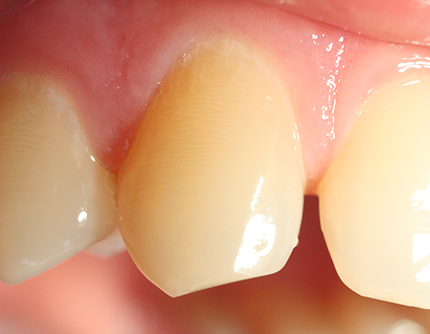VENEERS

What are veneers: Veneers are customized and individually sculpted for each patient. It is almost impossible to tell the difference between a veneer and a natural tooth. As opposed to natural teeth, custom-made veneers resist coffee and tea stains, and cigarette smoke as they are comprised of high-tech materials. With veneers unlike crowns, your natural teeth remain largely unbroken and intact with only a minimal amount being altered to accommodate the veneer. For those teeth that resist whitening, veneers can be leveraged to make even the darkest teeth appear bright white.
Veneers are layers of material that cover various teeth imperfections aesthetically. They are dental materials of high quality that mask cracks, chips, gaps, and more. They are usually made of porcelain or composite materials.
Who can use dental veneers?
All individuals who want to improve their smile opt for dental veneers.
When you wear them, you can cover your chipped teeth, stains that do not improve with teeth whitening, diastema (gaps that appear when you smile), smaller than usual teeth, and distorted teeth.
However, only those who do not suffer from gum disease and cavities can opt for veneers. Those with serious dental issues must get them sorted out before they can go in for a veneer – a cosmetic treatment for teeth.
In addition, dental veneers may improve the way your teeth look, but they do not repair or toughen your teeth.
Different types of veneers
There are different types of veneers, such as porcelain veneers, composite veneers, removable veneers, and no-prep veneers.
- Porcelain veneers: They can be an option for various imperfections of teeth. They are restorations that are personalized to suit your dental structure. Before placing them, a dentist should eliminate some enamel from your original teeth. It is a procedure for roughening the surfaces of your teeth and helping them sit properly.
- Composite veneers: They are used for masking mild aesthetic issues. Here, the dentist uses a tooth-colored composite resin to place the veneer.
- Removable veneers: Also known as pop-on veneers, they conceal your natural teeth to shield tooth defects. It is easy to take out removable veneers anytime. Although these veneers may improve your smile, they can make it difficult for you to eat and may affect the way you talk.
- No-prep veneers: Also known as minimal-prep veneers, they are relatively easier to wear. They can be customized for your smile. Removal of enamel is less for these than traditional veneers. But they are not a fit for all individuals.
Take care of veneers by brushing and flossing regularly. After wearing a veneer, maintain proper oral hygiene. Consult your dental professional for more details.


